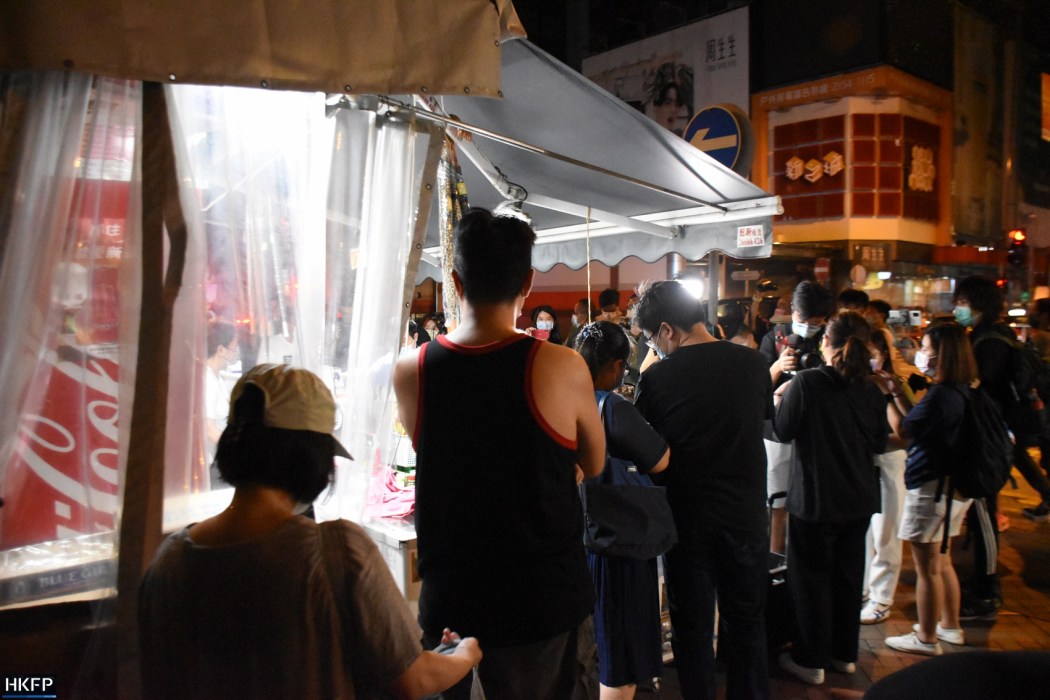Hongkongers have cleared the shelves of local pro-democracy newspaper Apple Daily, a day after police raided its newsroom and arrested five senior executives on suspicion of breaching the Beijing-enacted national security law.
It is the second time in less than a year that the publication has been at the centre of a mass-buying display of solidarity following law enforcement action against it by the city’s authorities.

Copies were snapped up at convenience stores and newspaper stalls across Hong Kong on Friday morning, as people bought the tabloid en-masse 24-hours after police conducted a five hour search of its newsroom to gather evidence of alleged national security offences involving publication’s top management.
The raid on Apple Daily’s Tseung Kwan O office came as five directors were apprehended by police at their homes on Thursday morning on suspicion of colluding with foreign forces. They are accused of publishing a series of articles calling for foreign sanctions against China and the HKSAR.

The five are Next Digital CEO Cheung Kim-hung and Chief Operating Officer Royston Chow, Apple Daily’s Editor-in-Chief Ryan Law, Associate Publisher Chan Pui-man and Nick Cheung, who manages the newspaper’s online news platform.
On Instagram, people shared photos of the newspaper they purchased under a Chinese hashtag that read “Support Apple Daily.” One user told others to grab a copy and said she wondered what was on staff members’ mind when they put together a paper that was labelled as “criminal” by the authorities.
每日一蘋果, 冇人呃到我
— Geoff K. Cheng (@GeoffreyKFCheng) June 18, 2021
Support @AppleDaily_HK pic.twitter.com/ou2byaqKmk
“Because of their persistence, and their fearless spirit, we can still know the truth today,” an Instagram user wrote.
Apple Daily’s front page on Friday featured photos of the five arrested directors, with a line saying at least 44 computers and hard disks containing journalistic materials were seized by police. It was the first time that police obtained a warrant that granted them powers to search materials used in newsgathering, the newspaper said.

Photos on Instagram showed some people buying dozens of copies of the paper, which they said would be distributed to others in the neighbourhood.
The pro-democracy publication printed 500,000 copies on Friday and the first batch was sent to numerous newspaper stands in Mong Kok at around 12.30 am on Friday morning. More than a dozen people lined up to buy the newspaper, with many getting more than one copy.
Similar acts of support for Apple Daily were seen last August, when police arrested the newspaper founder and media mogul Jimmy Lai under the sweeping legislation. Hongkongers emptied newspaper racks across the city at the time, and the publication had to add 200,000 copies to the 350,000 printed owing to high demand.
Lai is currently behind bars for 20 months over his role in three unauthorised protests in 2019. He is set to face a national security trial in the city’s High Court, where the maximum sentence is life imprisonment.

Western criticism
On Thursday, western countries criticised the raid and arrests, describing it as a crackdown on opposition in the city. UK Foreign Secretary Dominic Raab said the security legislation was used by Beijing to target dissent, instead of safeguarding public security.
“Today’s raids and arrests at Apple Daily in Hong Kong demonstrate Beijing is using the National Security Law to target dissenting voices, not tackle public security,” Raab wrote on Twitter.
“Freedom of the press is one of the rights China promised to protect in the Joint Declaration and should be respected,” he added.

The US Department of State said they were deeply concerned about the “selective use” of the national security law to supress independent media. Ned Price, spokesperson for the department, said they “deplored” the Hong Kong police citing articles published in Apple Daily as evidence for the national security offence.
“As we all know, exchanging views with foreigners in journalism should never be a crime,” Price said.
Price went on to describe the raid and arrests on Thursday as “efforts to stifle media freedom,” saying such a move would undermine Hong Kong’s democratic institutions and the city’s credibility and viability as an international hub.
“We are concerned by increased efforts by authorities to wield the national security law as a tool to suppress independent media, to silence dissenting views, and to stifle freedom of expression,” he said.
Support HKFP | Policies & Ethics | Error/typo? | Contact Us | Newsletter | Transparency & Annual Report | Apps
Help safeguard press freedom & keep HKFP free for all readers by supporting our team
























